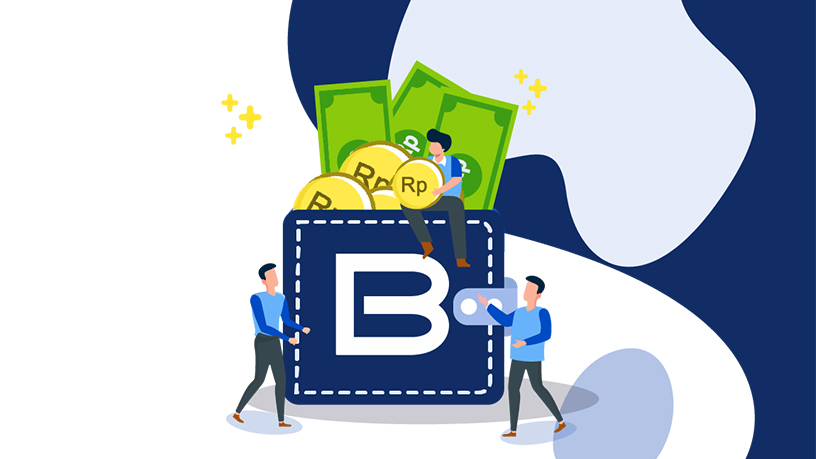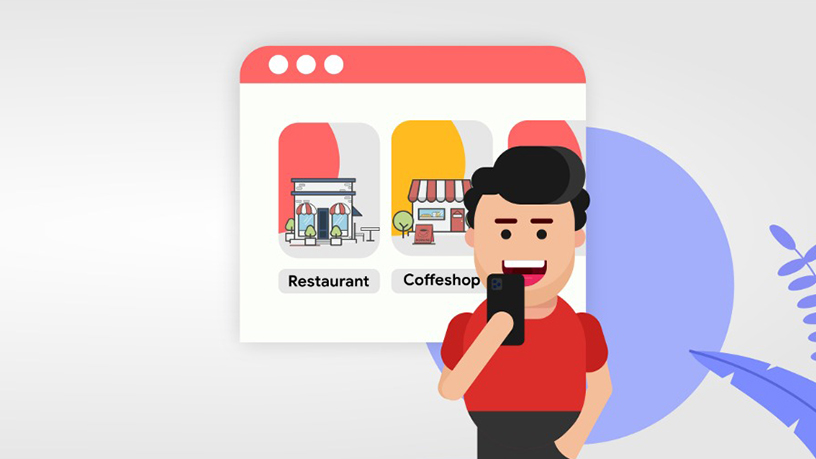CrowdDana is the latest equity crowdfunding platform to receive its license from the Financial Services Authority of Indonesia (OJK). It takes a different approach to the crowdfunding business model: instead of helping SMEs and franchises raise funds, CrowdDana takes its business model directly to real estate projects.
In particular, the startup offers investments in boarding houses, which are popular among university students and office workers looking for a cheap place to stay while avoiding long commutes. They are equally popular among landowners looking to maximize the value of their prime real estate.
CrowdDana was founded by real estate analyst James Wiryadi, along with Stevanus Iskandar Halim and Handison Jaya, who were his colleagues at digital marketing startup Ematic. CompassList met Halim, the Chief Product Officer of CrowdDana, to find out about the company's unique crowdfunding approach, the challenges of obtaining a license and their future plans.
When did you start working on the idea for CrowdDana and preparing to build up the company?
We started assembling the team and working on the idea in December 2018. When the regulations were made, we saw a great opportunity to start a company in equity crowdfunding. After we settled on the business idea, the company was officially incorporated and we began working on the company part-time in April 2019. All the founders still held their jobs at the time. We shifted to full-time operations in June 2019, with three founders and two other employees, and soon thereafter submitted our license application to the OJK.
CrowdDana submitted the application in June 2019 and it took about 6–7 months to get the license. What was the most challenging aspect in the application process?
The regulation is very strict, so we had to provide a lot of data and information about our business model, our system's readiness, legal standing and many more documents. It was a really a big stack of documents. There were many questions and we had to do five revisions after submitting our documents. After that, we had to demonstrate how our product works, and then, there was another round of revisions. Then they did a surprise site visit. The process is very long but I think the OJK is also very aware of how startups operate, so they have been very supportive. They provided a lot of guidance throughout the process.
Why equity crowdfunding, and why real estate?
As the middle class grows in number and income, more people want to invest. People now have money left over to save or invest after fulfilling their basic needs. On the other side of the equation, there are still gaps in property development funding.
In Indonesia, and maybe Southeast Asia, many small companies don't have a long credit history. They have a hard time getting loans from banks, which are risk-averse and don't lend big amounts to SMEs. Each project can cost IDR 6bn–8bn, which is more than what banks can lend. Smaller developers might not be able to borrow the money they need to start or complete projects. The banks need a lot of collateral and the process isn't easy. Equity crowdfunding is ideal to bridge this gap.
We saw how fintech companies providing P2P business lending have grown. The demand is there. On the other hand, we also saw the gap in funding that I described earlier. We want to help these small developers and SMEs to grow. What they need is a platform to connect the investors with the businesses that need funding. It's a bit like Gojek, which connects motorcycle taxis to prospective passengers. It's a simple concept, but it didn't exist before.
Some of the P2P lenders are still not doing enough to bridge the funding gap for SMEs. Many of these companies are doing invoice financing, serving big companies. A few of these companies are definitely working with SMEs, like Amartha and TaniHub.
Both of the startups you mentioned are very specific in their mission and model.
Yes, for sure. I won't say who the others are but most of them focus on invoice financing because it's the safest. The default rate is lower, and the borrowers are big companies. So we figured that another way we can explore is equity crowdfunding. It's not exactly new, but what we're doing is to improve the process with technology. When people opened restaurants or other small businesses, it was never one person's money or a bank loan; they pooled funds from family and friends.
We also think that it's the right time, as the Indonesian economy will be growing really fast in the next 20–30 years, thanks to the demographic dividend. The number of working-age Indonesians will peak in the 2040s. It's a good time to start a company in this field.
How does a prospective investor join CrowdDana and start investing in projects?
Prospective investors must first register through the app or website. They fill in personal data, like their name, ID number, a picture of the ID and a selfie with the ID. They also need to inform us about their annual income and the source of their investment funds, whether it's from business or other investments. Based on OJK regulations, investors can only invest 5% of their annual income if their income is below IDR 500m. If their income is more than IDR 500m, the limit is raised to 10%. That's why we ask how much their annual income is, so we can put a limit to their wallet top-up transactions.
After they register, they verify their account and phone number. The data is submitted to Privy.ID, our third-party partner for e-KYC and digital signature. We submit the applicant's personal data to Privy.ID, which would check the data against the national registry to confirm the identity. Once the identity is confirmed, the user registers their digital signature, following which, they can start charging their wallet and begin investing in projects. Users can browse projects, read the prospectus and decide which projects they want to invest in.
The minimum investment value advertised on your website is IDR 5m.
The value actually depends on certain things. Based on incorporation laws and OJK regulations, the private companies formed through equity crowdfunding can only have a maximum of 300 investors. More than that, the company needs to be a public company and list on the exchange. We hope to lower the investment minimum further, as low as IDR 1m or even less.
We have a dynamic calculation system, which can calculate the minimum investment per person based on the remaining funds required and the number of investors that can still join. In the project that we are currently funding, the minimum investment for the first investor was IDR 20.6m, but it has decreased. The next new investor must invest a minimum of IDR 8.9m.
All three projects you now have are in real estate. How do you find the projects and how do you assess the risks?
We work with third-party property developers for these projects. They manage the projects. Our task is due diligence. The developer first looks for the land or lot to build the boarding houses. The current strategy is to look for plots that are near universities or office buildings. By the way, in the future, we might look into takeovers of boarding houses, but, for now, we are focusing on building new ones
After finding the plot, the property developer prepares the project documents, estimates, the building design, etc. They would also tell us the timeline for various processes, from getting the permit to finishing the project, as well as the projected income and expenses from operating the boarding house.
As part of our analysis, we look at the area surrounding the proposed site and see if there's actually demand for the boarding house. The site could be close to universities or offices, but there might not be enough demand. One way to predict demand is to look at the boarding houses that are already in the area, the rent prices and amenities, and, of course, the occupancy rates. If there are many boarding houses in a certain place and they're all full, that shows big demand.
Are all the projects from different developers?
No, all three projects we have right now are from the same developer. We are looking for more developers, so that we can expand. Our current partner's expertise is primarily in West Jakarta and BSD areas. We want to expand to other places so we can get more, better projects.
All your projects are boarding houses. Is it because of a better return? When you expand, what kinds of projects will you look for?
Right now we are focusing on boarding houses. We may consider funding a housing project, but we're still thinking about it. Boarding houses, especially for the lower-middle segment, is still the most profitable. Demand is high and supply cannot match. We've surveyed the Jakarta area and we found an oversupply of middle-upper class rental property and apartments. In comparison, boarding houses have much higher demand, provides quicker returns and are easier to manage compared to apartments.
What about the returns to investors?
For these property projects, we estimate the ROI to be 15%–16% per year. Eleven percent from the dividends shared from rental income and the other 5% coming from capital gains. We used historical data from the central bank to estimate this and found that capital gain for this sector averages around 5%.
People ask how the capital gain can be realized when it's all on paper. The share prices increase as the property price increase and the shares can be traded in the secondary market. OJK recommends that we open each project to the secondary market one year after the project is fully funded and every six months afterward. The recommendation can change but this is what it's like right now. It's not like the stock exchange, which is open every day.
How does CrowdDana monetize?
We take a 3% commission for each funded project. This is already included in the fundraising target shown on the CrowdDana website. After the boardinghouse is operational, we take a 5% cut from the rental income.
Does CrowdDana have external investor backing?
We started with our own funds but around July 2019 we received funding from three angel investors. We are now looking for VC funding and we are planning to raise $750,000. We will use the funds to develop the product (both app and website) and hire more team members, as we need more manpower to serve customers better and find more projects. We also need to ramp up marketing activities to acquire more customers.
What type of investors would be ideal for CrowdDana?
Firstly, we hope to get an investor related to one of the major banks, like Central Capital Ventura (owned by BCA), OCBC NISP Ventura and Mandiri Capital Indonesia (owned by Mandiri). The connection will open opportunities to market our projects to the bank's priority customers through their relationship managers. Second, ideally we would like to work with investors with channels to real estate projects or SMEs. For example, Sinar Mas is a big developer with lots of land and projects to invest in. Gojek, Grab, and MOKA (POS system) have many connections with SMEs and we can work with them to reach out to merchants.












